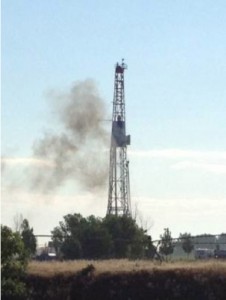
CO-04 (Special Election)
See Full Big Line
(R) Greg Lopez
(R) Trisha Calvarese
90%
10%

President (To Win Colorado)
See Full Big Line
(D) Joe Biden*
(R) Donald Trump
80%
20%↓

CO-01 (Denver)
See Full Big Line
(D) Diana DeGette*
90%

CO-02 (Boulder-ish)
See Full Big Line
(D) Joe Neguse*
90%

CO-03 (West & Southern CO)
See Full Big Line
(D) Adam Frisch
(R) Jeff Hurd
(R) Ron Hanks
40%
30%
20%

CO-04 (Northeast-ish Colorado)
See Full Big Line
(R) Lauren Boebert
(R) Deborah Flora
(R) J. Sonnenberg
30%↑
15%↑
10%↓

CO-05 (Colorado Springs)
See Full Big Line
(R) Dave Williams
(R) Jeff Crank
50%↓
50%↑

CO-06 (Aurora)
See Full Big Line
(D) Jason Crow*
90%

CO-07 (Jefferson County)
See Full Big Line
(D) Brittany Pettersen
85%↑

CO-08 (Northern Colo.)
See Full Big Line
(D) Yadira Caraveo
(R) Gabe Evans
(R) Janak Joshi
60%↑
35%↓
30%↑

State Senate Majority
See Full Big Line
DEMOCRATS
REPUBLICANS
80%
20%

State House Majority
See Full Big Line
DEMOCRATS
REPUBLICANS
95%
5%
 August 05, 2014 02:06 PM UTC
August 05, 2014 02:06 PM UTC 18 Comments
18 Comments
This is woefully inaccurate…
This has nothing to do with Hicks' leadership. The credit here needs to go to the leadership of the environmental community (you know who you are..) for pushing a deal with Congressman Polis. Hick is along for the ride.
I agree Polis is the hero, but it does take two to make a deal. Hickenlooper brought the side to the table that Jared could not, and he should get some credit for that.
I do not believe it was Hick who did that. The impetus came from elsewhere….
Pefectly accurate as to the politics of perception.
Here is what DailyKos thinks of Polis:
And there's another angle here, one that The Hill explores: Polis, thanks to his wealth and connections, has long been interested in serving as the next chair of the DCCC, something he's acknowledged openly. Nameless insiders had recently savaged Polis for his excessive ambition in the pages of Politico, so standing down now allows him to demonstrate he's a go-along, get-along kind of guy who won't be too hostile to big business. This is all very sad and pathetic, but this kind of behavior is all too typical in Washington, DC.
Who won't be too hostile to big business? Seriously? That was a concern? He's the most business friendly kind of Dem. For him, this started as a NIMBY issue and expanded to match his ego. In an alternate history where nothing was ever anywhere near one of his properties I don't see him leading this charge at all.
yep…agree, totally.
He worked some on the issue prior to have a rig move in.
Losers for a future diary?
Hint: It's spelled Both Ways Bob (he he!)
Coloradans not holding political office, or not O&G executives . . .
. . . in short, no one who really matters.
Polis apparently got protested by an angry crowd of environmentalists (200 or so) at a town hall meeting in Boulder tonight.
Seems that there were quite a few dedicated volunteers who didn't appreciate all of their hard work being traded away for dubious political advantage, and a blue ribbon commission whose powers are undefined and whose members are apparently to be nominated at the Governor's sole discretion.
I think the makeup and agenda of the Commission should be the next appropriate target for activism.
Read: Clusterfrack, by Peggy Tibbets, On the Styx, commentary on The Deal
Denver Post report on tonight's meeting.
Great song . . .
. . . shitty thing to do
A "Blue Ribbon Commission"…sounds like we got fucked…
Of course you did . . .
. . . but you got a blue ribbon, too. Feel better?!?
Seriously!
This doesn't make you feel better?!
There are always un-intended consequences that often don't get aired. I'm happy this battle over fracking and local control won't be happening. There is a bill in Congress; HR 4272; that looks to overturn the Forest Service off-road-vehicle rule from 2005 in favor of local control in forest management. Word today is that a Senate subcommittee report at least temporarily contains similar language.
Or, to put it in lay terms, rural county commissioners who want to log everything in sight or allow ORVs to go anywhere they want would have the final say over federal land management decisions. The effort affects Washington state at this time, but would have potential to go beyond that state. Many enviros have put in tons of time, energy, and money trying to prevent local control from getting precedence in these forest decisions. If a similar effort would arrive here in CO, the env. community could lose public credibility by demanding local control over fracking, but opposing local control over forest management.